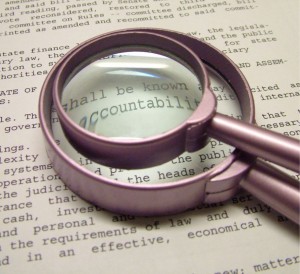I recently read an article in Forbes outlining 11 trends to watch for in 2015. The first and most important trend identified by the author, Avi Dan, had to do with transparency. “Transparency will become the most important tool of marketing,” read the title. The article continued: “Consumers are going to continue to exert power and influence. The idea of radical transparency is something that few brands are taking advantage of now, and most brands fight it. Next year the best brands won’t be those with the best stories, or sort of made up fictional stories, but those that will give an accurate and real time picture of what they are doing in the interest of the consumer, at any given time.”
Having worked in public relations, I have come to the conclusion that transparency is indeed an important factor for companies to consider in their public relations strategy. Over the summer I participated in a preparation session for a media spokesperson of a company going through serious financial issues. We brought in an outside consultant to grill the spokesperson on questions she might face when announcing the company’s financial results. In order to illustrate the importance of transparency, the consultant brought videos of CEOs discussing their companies’ financial results while displaying a subtle hostility to media. They refused to answer simple questions about their company and tried to downplay the extent of the financial damages incurred during their respective fiscal years. One example was BP – a company which for years has denied the extent of damage caused in the Gulf of Mexico and has tried to silence criticism.
During the session, we hammered home the point that the worst thing a media spokesperson can do is sweep criticism under the rug. Companies need to be upfront with their shareholders, the public, and any other potential stakeholders.
Indeed, this strategy should not only be used to deal with negative criticism; if utilized correctly, it can in fact be a source of positive marketing for the company. Consumers respond positively to transparency. The companies that catch on to this trend sooner will be the ones who can capitalize.
The importance of transparency in the corporate setting was confirmed by Rober Eccles in “The Value Reporting Revolution” (2001). Eccles argued that companies with fuller disclosure win more trust from investors, resulting in higher valuations. This led to companies sharing more key metrics and performance indicators with investors.


